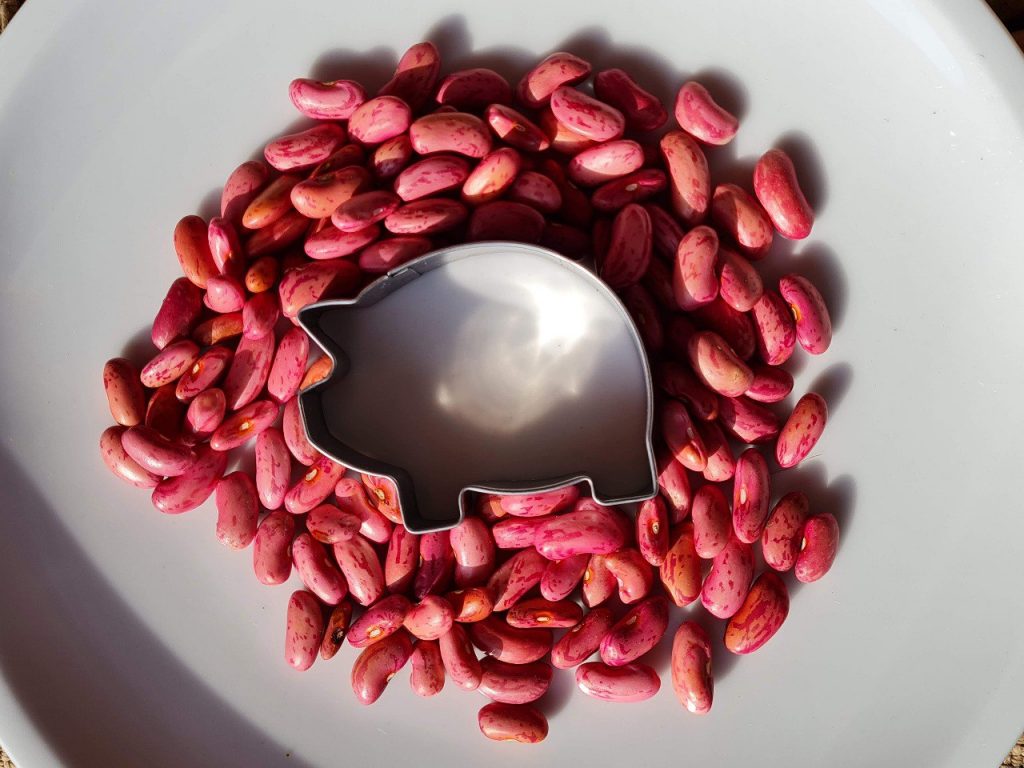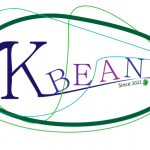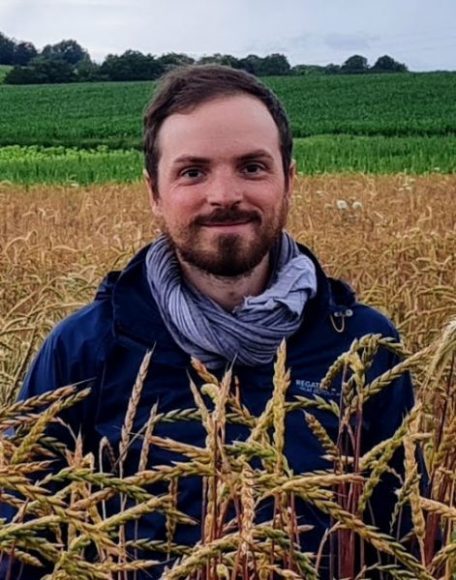Takeaways from Terra Madre 2022
Closed roundtable, public conference and a closer look at the recent IPES-Food report
The high protein content of pulses is one of the main reasons why we (the Global Bean community and many others) believe that they have a key role to play in fixing our broken food system – in short, we say that they will save the world. They are indeed healthy whole foods with a very low environmental footprint and they can help reduce the consumption of industrial animal products (meat, dairy, eggs, seafood) which are a well-known burden on climate and the ecosystems at large. Basically, I think that a shift towards more production and consumption of local pulses and less industrial animal products is the very simplified definition of the protein transition we should aim to promote in the Global North. But of course it is more complex than that!

Slow Food organised a closed roundtable at their international event Terra Madre, in order to start building the movement’s definition of protein transition and their approach to it. As part of the Global Bean Project, I had the honour to be invited, along with Cecilia Antoni, specialist of the preparation of pulses and part of the Global Bean team and among around 20 participants from many countries. The conversations took place in three small groups and we were asked to share and organise keywords on mind maps, answering the questions “What is protein transition?”, “What are the current barriers to this transition?” and “What are solutions to overcome these barriers?”.
The participants had very diverse backgrounds and represented various “interest groups”: a fisher, a public procurement specialist, a bean producer, a beekeeper, a vegan food content creator, a Slow Food beef farmer, a restaurant chef, a marketing specialist, a representative of the European Commission, scientists working on global food system issues, etc. Unfortunately, as was acknowledged by the organizators, the panel had too little representation from countries of the global South and from the sphere of policy makers.
Although a diversity of points of view was represented I think I can say that all agreed on the fact that the current patterns of protein production and consumption are not sustainable and that a shift towards less animal-based and more plant-based proteins is required, especially in the global North. We discussed the influence of the current highly globalised food system on maintaining the status-quo, and some ways to overcome it at least partially. In my group, there was quite an emphasis on the need to educate the consumers to accelerate the trend in the demand of more plant-based diets: providing more skills and recipes as well as motivation to cook and avoid industrial meat substitutes. However, we recognized that there is an urgent need for more policies to encourage small-scale farms providing a whole lot of ecosystem services to local communities (among which the production of high quality protein-rich products) versus increasingly big and specialised industrial animal farms focused on long supply-chains and exports. We agreed on the necessity to depolarize the debate, use a systemic view and bring more science-based arguments. The inputs from the brainstorming of the three groups will now be used by Slow Food to formulate a position paper on the protein transition.
On the same day, Slow Food organised their first ever conference dedicated to the protein transition. A short report of this conference can be read here, highlighting brilliant talks by Nick Jacobs, Director of IPES Food and Julius Fiedler (@bakingherman on Instagram). Valentina Taglietti described her important project at MenoPerPiù, which aims at improving plant-based options in school, university and work canteens (legumes in community catering is the theme of one of our next public conferences). I was rather disappointed by the representative of the EU commission, who in my opinion did not manage to bring clear arguments to the debate, leaving the public rather perplexed, if not pessimistic, on the fact that the next EU policies will enable a positive transformation of the food system.
I would like to focus on the contribution of IPES-food to the debate, as I consider their input to be extremely useful. IPES-Food is an independent panel of experts from five continents shaping debates on how to transition to sustainable food systems around the world. They published a very accessible 2-minutes video sketching the issue with the current debate around proteins. Their recent report “the politics of protein” highlights that the debate around the protein transition is highly flawed by a set of oversimplifications, fake claims, misleading statements and over-generalizations which are abundantly used by large food industry companies and their lobbies to attract private and public funds.
Firstly, there is an overemphasis on protein. Protein transition has been something of a buzzword for at least the last five years, and some tenants of industrial agri-food chains tend to serve their own financial interest by advocating that there is a need to increase global production of protein. It is important to remember that “protein is only one of many nutrients missing in the diets of those suffering from hunger and malnutrition, and [that] insufficiency of these diets is primarily a result of poverty and access, not of the quantity produced”. Moreover, as Nick Jackobs reminded us, in the Global North the vast majority of the population is safe from protein deficiency, the average person eating far more protein than they actually need (have a look at the data from knowledge4policy and ourworldindata). On a side note, in high-income countries, there’s no need to worry for vegetarians and vegans and ask them the too often heard question, “How do you get enough protein?”, as shown for instance in this review article.
However, we should be careful to acknowledge that access to protein of good quality and in sufficient quantity is not ensured for all the population of the Global South, where food insecurity and livelihood challenges make the answer more complex than “we need more plant protein and less meat”. It is important to keep the systemic approach in order to realise that the transition to a better food system will look differently from one country to the other. In low-income countries, where many communities currently depend on animal sources for their protein supply, there are also numerous initiatives promoting the cultivation and use of pulses as a cost-efficient protein source.
In addition, the discussion on proteins tends to oversimplify and consider that all animal production systems are equal, and all plant production systems are equal. However, it is wise to remember that in many of the world’s ecoregions, livestock systems based on pastures bring a range of crucial ecosystem services (maintenance of landscape, biodiversity, carbon sink) where annual crops would anyway be very difficult to grow. Whether it is right to kill and eat the animals grazing on these pastures is another debate, linked to ethics, that we should also try to depolarise. Anyway, it is quite clear that most of the animal protein consumed in Europe does not come from virtuous systems based on permanent pastures, but rather from industrial livestock systems where the animals mostly eat maize, cereals, rapeseed rape and imported soy. In the closed roundtable, the beef farmer agreed that highly industrialised livestock systems, in the form they are continuing to develop, don’t have any positive role to play in a sustainable food system. Similarly, although the environmental impact of plant protein production is in general terms lower than that of animal proteins, some oversimplified intensive plant production systems have high environmental footprints, including in the EU (pollution of water with pesticides, high use of fossil fuels, soil degradation, etc.). We need to promote plant-based protein coming from crop rotations using a high number of plant species, intercrops, cover crops, agroforestry, that are more resilient, more likely to regenerate soils and to close nutrient cycles (see our Legume manifesto for a simple view of the Nitrogen cycle).
Another oversimplification is the common shortcut “protein = meat”. Both at the closed roundtable and at the public conference, speakers agreed that all protein sources need to be considered when talking about protein transition. When considering plant-based food, it is also oversimplified when we only consider legumes (mostly soy and pulses). In a balanced and diverse plant-based diet cereals, pseudocereals (like buckwheat and quinoa), nuts, and even tubers and vegetables cover a substantific part of the protein requirement.
In general, the overemphasis on greenhouse gases to measure sustainability is problematic when the proposed “solutions” fail to address biodiversity loss, chemical pollution, land degradation, livelihood stresses, hunger, and micronutrient deficiencies. This is an oversimplification used to create the buzz and justify the current rush of huge investments on ‘lab’ or ‘cultured’ meat and fish products, and ‘alternative plant proteins’ or ‘fake’ substitutes, as well as dairy and egg alternatives. The diverse meat and dairy analogues are often made with fractions of legumes grown from a small number of species (soy and pea) and a few varieties improved for industrial purposes. This further distanciates the consumers from the farmers and their work, as the highly processed products are often made using the same industrial structures as the foods they aim to replace, sold through the same channels. This also dooms the huge diversity of pulse varieties and the cultures behind them, which we’ll be showing in our upcoming series of stories “Behind the Seeds”. As the lead author of the IPES-food report puts it: “It’s easy to see why people would be drawn to the marketing and hype, but meat techno-fixes will not save the planet. In many cases, they will make the problems with our industrial food system worse – fossil fuel dependence, industrial monocultures, pollution, poor work conditions, unhealthy diets, and control by massive corporations.” The IPES published a very informative sheet on his issue: “Fake meat in the spotlight”, with ideas converging with the view of the founder of Slow Food, Carlo Petrini.
For a good, clean and fair protein transition, public funds and consumer attention should not be channelled into lab grown meat and plant-based substitutes, but rather to the development of small-scale local supply chains with whole foods, including legumes. The british Hodmedod’s, the Swedish Nordisk Råvara and the french cooperative Qualisol, as well as many farmers working individually or in collectives, like in the Slow Bean Network or the spanish pulses with denominations of origin are examples of organisations successfully engaging with this approach. We’ll present them in our November monthly online conference.
We can be confident that Slow Food will continue promoting pulses, since they can play a fundamental role as an integral part of a healthy and environmentally-friendly food system. Auguri, Slow Food, and thank you for the opportunity to dive in the very complex and fascinating topic of protein politics!




